Today I am very pleased to bring you a phenomenal interview with an amazing journalist and an international best-selling author Jennifer Cody Epstein. I believe she shows her humanitarianism through her poignant writing. Our interview is one that will enlighten you and I hope you enjoy it. If so, feel free to comment and start a discussion.
If you missed my review of her phenomenal newest novel, The Gods of Heavenly Punishment, which is set in WWII and gives us a look into the effects of the firebombing of Toyko from the victim’s point of view, you can click HERE!
And don’t miss out on ENTERING TO WIN a copy of her book. Details are located right after the interview!
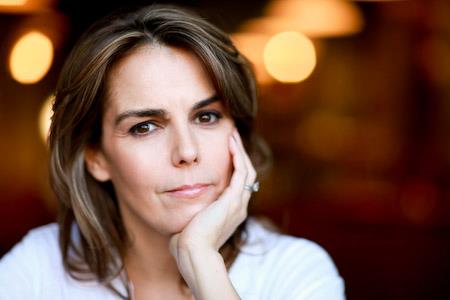 Hi Jennifer! Welcome to Oh, for the Hook of a Book! I am very happy to have you here today for a conversation about you and your writing! How have things been going with The Gods of Heavenly Punishment since it hit the shelves?
Hi Jennifer! Welcome to Oh, for the Hook of a Book! I am very happy to have you here today for a conversation about you and your writing! How have things been going with The Gods of Heavenly Punishment since it hit the shelves?
Jennifer: They’ve been going well! We’ve had some great press (especially from Oprah, which named it a weekly pick back in March) and I’ve had a lot of interaction with individual readers and book groups (I love talking to book groups) that has been both thought-provoking and really positive.
Erin: That’s so amazing!! Wonderful news and I can’t wait to hear more. Let’s sit back in the big comfy chairs, relax and talk! Maybe have a cup of tea, but I might have to do iced tea this time of year!
Q: You have quite a bit of extensive journalism under your belt coupled with a MA in Asian Studies. I like how you’ve merged writing fiction with Asian themes. Can you expound some on how you became inspired to turn non-fiction into fiction?
A: I think it’s because I’ve always secretly wanted to travel in time. Not to just learn about history (though I enjoy that too) but to actually experience it—or imagine that I’m experiencing it—first hand. For me, putting the fiction into history is a way of both really understanding it from a more layered and dimensional perspective, and making it come alive for myself (and ideally, my readers).
Q: Specifically, what led you to write The Gods of Heavenly Punishment? What themes and avenues were you hoping to bring to readers?
A: The novel’s original genesis lies in the fact that I lived in Japan for five years, and so always knew that I wanted to write about it in some context. Up until 2008, though, I really didn’t know what my “hook” would be (oh, for the hook of a book indeed!). Then my husband came back from an interview he’d just conducted for a film (he’s a documentary filmmaker). The subject of the interview was war crimes, and he asked me: “Hey, what do you know about the Tokyo firebombing?” Apparently it was an example that had been brought up by his interview subject—a military lawyer and historian—as an example of something we’d consider a war crime by today’s standards. I’d always been fascinated by the Pacific War, but what really piqued my interest about the firebombing was that I knew hardly anything about it at all—for all my years of studying Japanese history and even living in Tokyo it simply hadn’t come up in a way that meant much to me. So I went back and researched it, and discovered this enormous and devastating event that killed at least 100,000 civilians that no one seems to really know about. And realized: There it is. That’s my hook.
As for themes and avenues: I think most of all I was trying to get at how universally dehumanizing war can be for everyone involved—but also how we can find redemption and even love in the ashes that it leaves behind.
Q: How does your recent work, The Gods of Heavenly Punishment, relate to The Painter of Shanghai? Similarities? Differences?
A: They were very different experiences for me. Painter was more of a straightforward chronological narrative, although I tell it in the present tense (Gods is in the past). The other challenge posed by Gods was that I decided fairly early on to try to work with several different perspectives to tell my story, as opposed to just one main character’s. This was a more experimental tactic for me, and one that not only challenged me as an author (since I had to convincingly write everything from a Japanese femme fatale to an imprisoned bomber pilot to a tortured architect) but one I knew was also going to be more challenging for readers, since they’d need to put the pieces of the story together themselves to some extent rather than be “spoon-fed” a traditional narrative. So it was a little scary. But in the end I felt like it delivered a different and in many ways more fulfilling reading experience—and happily, many readers (though not all!) seem to have agreed.
Erin Comments: I don’t like spoon-fed. I enjoyed the way you wrote it!
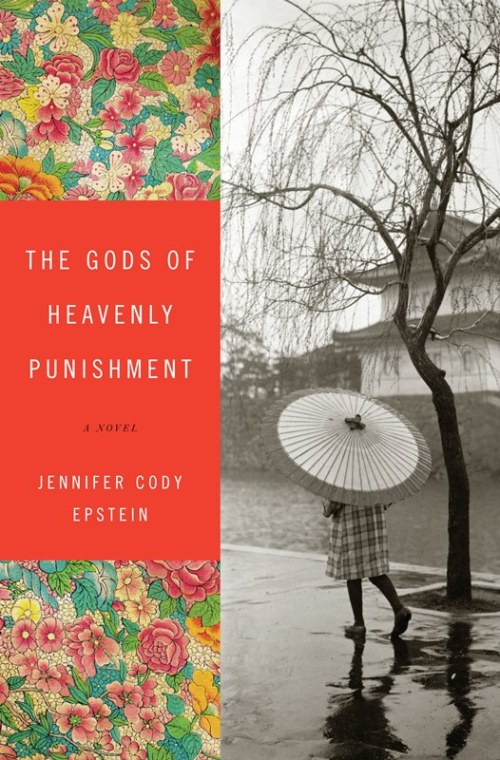 Q: The Gods of Heavenly Punishment has some gut-wrenching, harrowing scenes. When researching WWII, and more to the novel the firebombing of Toyko, how did you get through it emotionally?
Q: The Gods of Heavenly Punishment has some gut-wrenching, harrowing scenes. When researching WWII, and more to the novel the firebombing of Toyko, how did you get through it emotionally?
A: It was pretty harrowing from a writing perspective, too. I know that after a few scenes (in particular after Cam Richard’s section finished) I was drained, and literally shaking. I got through it in large part by allowing myself “rewards” over the course of writing the hard stuff—seeing my kids, going for a run with my dog, or (in weaker moments) taking a breather to scope out awesome shoes online.
Erin Comments: Shoes…shoes are always good…:) Retail therapy can be so important!
Q: What interests you most about Asian culture? First, historically, then, currently?
A: I think the way it is – like any culture—constantly evolving. Both of my novels deal with Asian nations at a turning point in their histories; the China of the artist Pan Yuliang was (like Pan herself) struggling to reconcile it’s own rich history and traditions with a world that was changing and quite literally invading it in ways physical, cultural and political. Similarly, in many ways the Pacific War was about Japan trying to find a new identity for itself in the 20th century—one that integrated the modern and Western without sacrificing the country’s traditional “essence.” It ended up being a very violent struggle for both nations.
Currently, I continue to be fascinated by the way modern and Western influences are being re-shaped and integrated into Asian culture—particularly in art and cuisine.
Erin Comments: I’d love to hear more on that sometime…how they are being integrated. I went to an art exhibit of pre-19th century Asian works. Going into it I knew nothing of Asian art, but found it quite exquisite and precise, yet also beautiful and flowing…I am curious to go and research current Asian art to see how it’s changing.
Q: How does this translate into your writing? Both fiction and non-fiction?
A: It translates into my writing mainly in the themes I keep coming back to. Both Painter and Gods spend significant time on fairly artistic themes—painting, photography, architecture and (to a lesser degree) fashion. In all of those explorations I am looking, at one degree or another, at the way that the new and the old come together (or, sometimes, clash); how West and East meet and create something ultimately new to both cultures.
Q: Do you feel that you’ll stay in the same vein of fiction writing with Asian themes or do you have a desire to write about other times and places?
A: I definitely have a desire to write about other places—and eventually, other times as well (though I seem to keep coming back to the WWII period for many of my ideas!)
Q: I like how when you write you seem to take an alternate view of a side of a story and teach us about the reality of that other side less told. In a way, then, you make the reader feel emotion and bring an understanding to the alternate side as well. There are always two sides to every story, so to speak. What brings about your desire to do so? Do you feel you accomplish this with readers?
A: In the case of Gods, I think it was because as someone who has lived in both countries and cultures, I really wanted to try to tell my story in a way that transcended traditional ideas of “us” and “them,” “good” and “bad” and made us see the war and its aftermath as a common experience for both of us. I don’t know if I accomplished this for all readers, but I’ve had feedback from many that they understood what I was trying to do, and appreciated it.
Q: I notice you like the use of photography. Do you feel a story can be told by a photograph? Or do you think that they are stepping-stones to tell a story? Why are they so important to history?
A: Both can be true. Certainly a photograph can tell a story—many of the images of Hayashi Tadahiko (whose “Dancer On A Rooftop” I use in Gods, among others) very deliberately tell stories. In fact, Hayashi himself was interested in the link between narrative and image to the extent that he at one point went around Japan photographing scenes that appeared in famous Japanese novels. For me, though, they are also definitely stepping stones as well. When I’m writing, I’ll often work off of images that I’ve found that inspire me—for instance, the famous image of a Japanese officer getting ready to behead a downed POW was one that definitely informed my writing of my own pilot Cam Richard’s story.
I think they are important because they can really give you a sense of the reality of a time and place that you have no understanding of personally—which is why, I think, so many people have such a stronger sense of World War II visually then they did for World War I, which wasn’t nearly as extensively photographed. But they can also be used to manipulate, which is something propagandists everywhere (from advertising agencies to governments) understand all too well.
Q: What are some things about the Asian culture that most people don’t understand? What are some of the things you liked that you might be missing as you’ve returned to live in the States?
A: I think for people who live outside of Asia and haven’t actually traveled to or been there—and particularly for Americans—it’s hard to grasp how enormously diverse the region is culturally and socially. Even for myself, traveling to Southern China for the first time after living in Kyoto, Japan for a year, I was astounded at how profoundly different just being in China felt to me—even though the two nations share a writing system and in many ways Japan’s culture has been shaped and influenced by China’s. I remember standing on a streetcorner in Guangzhou—getting narrowly missed by speeding bicyclists and almost knocked over by hurrying pedestrians—and feeling almost like I was in New York—the chaos and bustle and fierce individualism of the people around me felt that familiar. Before living in Asia, I would never have expected that.
Erin Comments: I would have never guessed so much difference either, though I figured the streets were busy and overcrowded in China. Probably from watching one too many Amazing Race episodes!
As for what I miss: hands down, it’s the food culture. I love Japanese food in particular, and happily there is a lot available in New York—but there are things (like bar food, for example) that are harder to find. More specifically, the feeling of being in a real Japanese pub or specialty restaurant or a tiny neighborhood restaurant that has only one counter and no menus –that’s really hard to find here.
Q: Do you ever write about women’s issues? What is the primary concern for women in Asian countries? Then, internationally? And finally, in America? What might be done to increase women’s rights around the world?
A: Wow—big questions! First one at least I can answer: yes. Actually, I’d say much if not most of what I write relates to women’s issues in one way or another, since I tend to write about women who are struggling to define themselves against a society that often isn’t ready for them. Both of my novels deal with the sex trade, for instance–something that still very much remains an issue for women world-wide, but particularly in parts of Asia.
They also deal with traditional Confucian values that are in many ways at play in China and Japan, and the restrictions those values place on women (like the post-Impressionist painter Pan Yuliang, the outspoken and fiercely independent Hana Kobayashi and her daughter Yoshi, who must learn to make her way as an orphan and a woman in post-war Japan).
In terms of today: the issue of women’s rights worldwide is so multi-layered and complex that it’s hard to whittle down concerns to just one (!) And likewise, Asia is (as I note above) such a diverse and rich place economically, politically and culturally that the issues are bound to differ country by country. But I’d say overall one of the main challenges lies in creating enough educational and economic opportunities for women that they are able to determine for themselves the kinds of lives they want to live—whether that means becoming the CEO of a top company or determining who they marry and how many children they have—or even if they marry or have children at all. I’d say that this applies to women pretty much everywhere—it’s just a question of degree: in places like America we need to both create an environment that ushers women past glass ceilings that exist everywhere (even in literature!) and educates women to not only strive for equality but expect it. In other places you have to start much further back, and simply give women the right to education in the first place.
Q: Is there a particular historical woman from history you’d like to write a book about? And why?
Photo of Pearl Buck, author and humanitarian, from an issue of The Economist.
A: There are many… I’ve been fascinated by Pearl Buck for a long time—the fact that she not only wrote copiously about Asia as well as the West, but was so active in humanitarian and civil rights issues. I’m also very curious about my biological great-great grandmother, whom I fairly recently learned about and who was a Cherokee Indian who married into an Appalachian village during the late 1800’s. Tokyo Rose is somewhere on my radar too….and I’m sure there are hundreds more out there.
Erin Comments: Great ideas!! My historical novel of my ancestors who put Manhattan into existence will also contain a Native American woman. I hope you do write one about your g-g-grandmother, I’ll read it right away! And of course, I have a soft spot for Pearl Buck.
Q: What other writing are you doing now beyond fiction?
A: I’ve been working on a couple of essays and a magazine piece—and a lot of blog-related guest posts and interviews, of course!
Q: Do you have another novel in the works? If so, would you mind sharing what you might be delving into next for curious readers? I’d personally love to read more from you.
A: I’ve got a couple of competing ideas at the moment that I’m trying to decide between. One is another Asia-based novel—probably Southeast Asia, though it would probably have a contemporary American element in it. The other would explore another aspect of World War II—but this time from the Western perspective, on the side of one of the Axis powers.
Q: What books do you enjoy yourself? Who are your writing inspirations? And who do you read just for the sake of loving to read?
A: I absolutely read for the sake of loving to read-it’s the one thing I’ve always loved (apart from my family and my dogs) for as long as I can remember. I find I read mostly fiction, though I have a pretty broad scope of what I’m interested in within that framework. A lot of historical fiction, obviously—but also more contemporary and the occasional thriller/page-turner. Especially for beach days. 🙂 In terms of inspiration: favorite authors include Toni Morrison, Vladamir Nabakov, Hilary Mantel, Jennifer Egan, David Mitchell, Chang-Rae Lee, Haruki Murakami, Dazai Osamu, Ye Zaoyan…I could go on. And on.
Q: What other hobbies or interest do you have? If you had a free day to yourself, how would you spend it?
A: Athletics are important to me: I love running with my dog, doing yoga, and lately I’ve been really enjoying swimming. I am a complete Scrabble fiend and online can get caught up in Words With Friends and Scrabble for hours (I am in perpetual competition with fellow author Hillary Jordan, who pretty much always kicks my butt, but I live in hope that I’ll get her back one day). I also love theater, movies, and—of course—eating. The latter probably too much, both for my figure and my bank account…. but there are so many great places in New York to eat it seems a waste not to try them all out.
Q: With your husband also in film, which I believe he’s produced some amazing documentaries, it seems that the both of you are great humanitarians. What lasting legacy do you as a couple hope to leave? How do you want to impact change?
A: He is an amazing documentarian—and a terrific storyteller, which helps me a lot in my own process. As for humanitarianism: I’m flattered you think so! Though of course I wish we were doing more…I’m not sure what Michael would say in terms of our ‘lasting legacy,’ but I know for my part I always hope to use my artistic voice to furthering cross-cultural tolerance and understanding—and to highlighting the individual’s ability to—perhaps even obligation to–challenge the status quo in pursuit of what he or she believes is right.
Q: I ask this question of most of the novelists who’ve come from a journalism background: What was the transition like for you to begin writing fiction as opposed to journalistic pieces? Do you feel it was very different, or a natural progression? Did you need to change your writing style?
A: For me it was a very natural progression—in large part because I’d always known I wanted to eventually write fiction, not non-fiction. I saw journalism as a useful way-stop en route to that goal, and I ended up learning even more from it than I had anticipated that I would. I think it taught me a real respect for fact and research, not to mention the value of personal interviews as part of the research process.
In terms of writing style—for me, I actually think I had to “change” my natural way of writing much more in order to write journalistically. Given the freedom, I tend to write pretty lyrically—perhaps too much so (!). So I had to learn to rein that waaaay in while writing nonfiction. In many ways that proved to be another useful lesson.
Erin Comments: For me, I had to change to my lengthy sentence and flowy style too, but I seem to be able to now jump back and forth between the styles. Journalism taught me how to write more tight and succinct sentences, which has been wonderful.
Q: Do you find the publishing road easier as an established writer? What have been your most challenging issues? What have you found to be successful?
A: Absolutely—the first novel is, while in many ways the most exciting book, also the hardest one to sell to anyone because you’re still unproven and there’s no feedback or sales record on your work yet (even though, somewhat ironically, everyone loves a debut novel once it’s published!). When all you’ve got is a single flimsy manuscript—and maybe a writing instructor’s recommendation–not only do you have to get an agent to look at it seriously, but (presuming they take a chance on you) they have to get a publisher to consider it. It’s nerve-wracking, to say the least. In fact, I think the psychological stress is probably the hardest part of the whole process. But once you’ve crossed that hurdle it definitely becomes easier for the second novel. Your publisher knows your work, and you know more about what to expect. It is –very slightly—more of a “regular” job by that point.
Q: And the most interesting question of the day, your most favorite international dish?
A: I think it’s a toss-up between foie gras and sushi—ideally sea-urchin. And New York-style rib-eye. And then any decadent French dessert—although I also really love Thai-style sticky rice with coconut milk and mango. Put ‘em all together with a great wine and I’m in heaven!
Erin Comments: MMMMM…the sticky rice sound delish!!
Q: Where can readers and writers connect with you?
A: Through my website—www.jennifercodyepstein.com—or my author Facebook page (“Jennifer Cody Epstein”). I also am on GoodReads a fair amount and love hearing from readers there!
Purchase The Gods of Heavenly Punishment at booksellers everywhere! Quick link to Amazon: http://www.amazon.com/The-Gods-Heavenly-Punishment-Novel/dp/039307157X/ref=sr_1_1?ie=UTF8&qid=1371789023&sr=8-1&keywords=The+Gods+of+Heavenly+Punishment
Thank you so very much, Jennifer, for chatting with me today! You’re so interesting and it was my honor to have you on the site. Best wishes in everything you do!
Jennifer: Thank you so much, Erin—both for the thought-provoking interview and the lovely review! It was truly my pleasure. 🙂
*********************************************************************************************************
Enter to Win The Gods of Heavenly Punishment!
 Publication Date: March 11, 2013
Publication Date: March 11, 2013
W.W. Norton & Company
Hardcover; 384p
ISBN-10: 039307157X
A lush, exquisitely rendered meditation on war, The Gods of Heavenly Punishment tells the story of several families, American and Japanese, their loves and infidelities, their dreams and losses, and how they are all connected by one of the most devastating acts of war in human history.
Fifteen-year-old Yoshi Kobayashi, child of Japan’s New Empire, daughter of an ardent expansionist and a mother with a haunting past, is on her way home on a March night when American bombers shower her city with napalm—an attack that leaves one hundred thousand dead within hours and half the city in ashen ruins. In the days that follow, Yoshi’s old life will blur beyond recognition, leading her to a new world marked by destruction and shaped by those considered the enemy: Cam, a downed bomber pilot taken prisoner by the Imperial Japanese Army; Anton, a gifted architect who helped modernize Tokyo’s prewar skyline but is now charged with destroying it; and Billy, an Occupation soldier who arrives in the blackened city with a dark secret of his own. Directly or indirectly, each will shape Yoshi’s journey as she seeks safety, love, and redemption.
Praise for The Gods of Heavenly Punishment
“…The book reveals itself to be as miraculously constructed as Frank Lloyd Wright’s Imperial Hotel in Tokyo (which itself is a character). The Gods of Heavenly Punishment is a page-turner thanks to its high-stakes adventure, torrid love affairs and characters so real they seem to follow you around. And in the end, this gripping novel asks us not just to consider a lost chapter of a famous war but also to explore what it means to be lucky—and what it means to be loved. (Amy Shearn, O magazine)
“Epstein’s second novel (after The Painter from Shanghai) is bursting with characters and locales. Yet painful, authentic (Epstein has lived and worked in Asia), and exquisite portraits emerge of the personal impact of national conflicts—and how sometimes those conflicts can be bridged by human connections.” (Publishers Weekly)
“Sweeping….[A] harrowing novel of destruction and creation that will appeal to fans of historical fiction” (Library Journal—starred review)
Author Jennifer Cody Epstein, Biography~
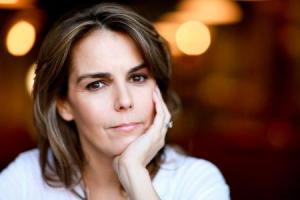 Jennifer Cody Epstein is the author of The Gods of Heavenly Punishment and the international bestseller The Painter from Shanghai. She has written for The Wall Street Journal, The Asian Wall Street Journal, Self, Mademoiselle and NBC, and has worked in Hong Kong, Japan and Bangkok, Thailand. She lives in Brooklyn, NY with her husband, two daughters and especially needy Springer Spaniel.
Jennifer Cody Epstein is the author of The Gods of Heavenly Punishment and the international bestseller The Painter from Shanghai. She has written for The Wall Street Journal, The Asian Wall Street Journal, Self, Mademoiselle and NBC, and has worked in Hong Kong, Japan and Bangkok, Thailand. She lives in Brooklyn, NY with her husband, two daughters and especially needy Springer Spaniel.
For more information, please visit www.jennifercodyepstein.com.
Link to Tour Schedule: http://hfvirtualbooktours.com/godsofheavenlypunishmenttour/
Twitter Hashtag: #HeavenlyPunishmentTour

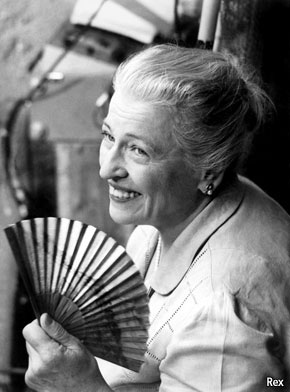
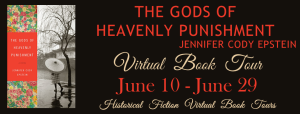
I was very moved when I visited Japan this year by Hiroshima and what I learned there about the bombings. I really found this such a thorough and in depth interview and look forward to reading this novel in due course.
LikeLike
Thanks for stopping by Carol. I am very proud of this interview. Jennifer is a very interesting person and I do highly recommend the novel.
LikeLike
I thought the author’s comment on putting the fiction into history a fantastic thought. I never thought of seeing the Tokoyo bombings from there point of view.
LikeLike
I left my email
i tweeted,
Absorbing and Thoughtful Interview with Author Jennifer Cody Epstein: Asian Culture, Women’s Righ…
I entered on facebook
I put on pinterst
LikeLike
Wow there’s so much in this interview and this book it sounds like it could become a classic. Like many others I’m also a fan of Pearl Buck. If Jennifer’s book echoes her at all I must have it. Thank you for the giveaway.
+1 comment
+1 blog follow by email: carlscott(at)prodigy(dot)net(dot)mx
+3 Facebook follow: Carl Scott
LikeLike
It’s a great book, absolutely! Thanks for coming by, Carl!
LikeLike
This book has it all, and I would love to read it.
LikeLike